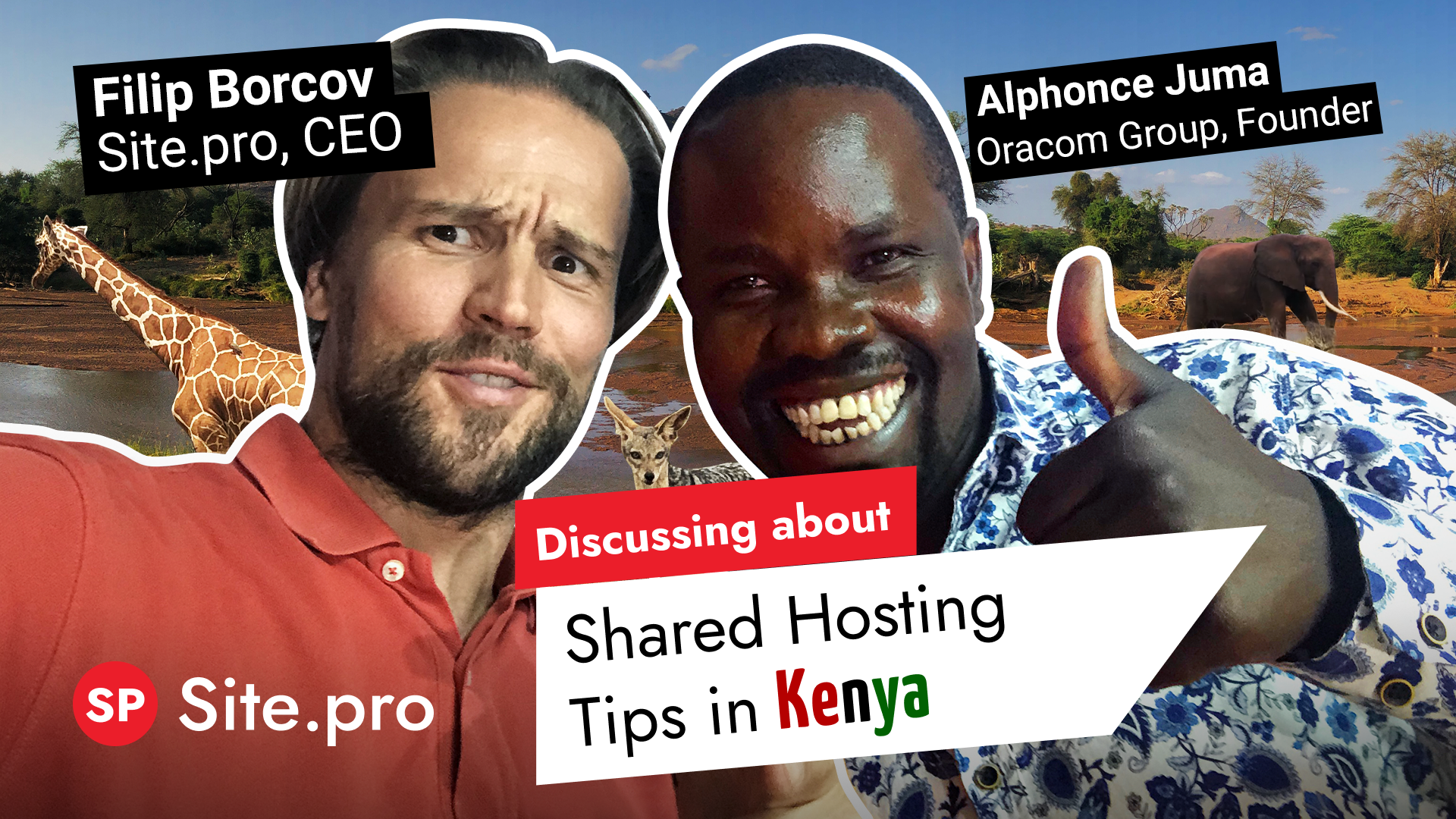Africa is an exciting place for the Internet and the shared hosting market. The continent is starting to go digital, giving an exciting opportunity to see how digital markets develop almost from scratch. Kenya is an exciting example of this: the country is one of the largest tech hubs in Africa and is slowly but steadily starting to embrace digital technologies.
Alphonce Juma, the Founder of the Oracom Group, sat with us to discuss the shared hosting and website builder market in Kenya, as well as what route the country has taken. It was an exciting discussion that allows getting a glimpse of a market with huge potential at its very infancy, with its opportunities and challenges. Ready? Let’s get going!
Introducing the Oracom Group
Oracom Group is a web design, domain hosting, and Internet marketing agency. The company is a one-stop-shop for businesses to go online. “We basically help clients to go online, providing them with anything they need to have an online presence. The case of Kenya is different compared to many places. We don’t just help people to host their website, but help them to go online after being fully offline,” mentions Alphonce excitedly.”There are so many advantages for businesses to be online. Giving them that platform, and knowing that we are the team that enabled this growth, it’s a great feeling.”
Kenyan Market in Numbers
Kenya has quite a large population of 55 million people. The Internet penetration rate is low, standing at around 20-30%, but according to Alphonce, it’s growing. “It’s about mobile penetration, which has grown. More and more people have access to the Internet with their mobile phones, as they are starting to use smartphones.”
There are around 100,000 .co.ke registered domains, which is the country’s official TLD. This makes Kenya one of the tech hubs in Africa, as it’s one of the biggest numbers of local websites, and a lot of it can be attributed to hosting. However, people don’t necessarily prefer their local domain, and freely go with other domains as well, depending on their needs. “The young generation of Kenyans had access to the innovation and tech hubs around the country, and were able to “cultivate” innovative approaches and be open to new things,” mentions Alphonce. In the country, people speak predominantly English. In Tanzania, another tech hub in Africa, people also speak Swahili. But since Kenyans are not so great in Swahili, that’s why 24/7 support is available only in English.
Money Matters
The pricing is around $30-50/year on average. Initially, the prices were higher. “It starts with the rate of the domain. A company like us needs to consider the pricing and think if people will have the opportunity to renew. Sometimes, they purchase a new domain and don’t renew it. Currently, the annual cost for hosting is $30, but some providers sell it much cheaper. Companies are always looking for opportunities to go online cheaper, so the pricing is a big incentive in the market.”
Website Builders in Kenya
Website builders are slowly gaining popularity in Kenya among businesses, mainly because of their simplicity. In the words of Alphonce, website builders are an upcoming technology that is making the lives of businesses easier. “I’ve been in web development. Sometimes when you need to build a website for a client, it can be very costly. As a developer, you can’t do anything about this, and can’t make it more accessible. With a website builder, however, you see the UI, it’s so much easier. What you see is what you get, and it makes peoples’ lives easier.”
However, there is an issue with understanding the tools as well. Because the digital side of Kenya is starting to develop, people don’t understand how many technologies work. “Sometimes you tell the customer that you can build your own website, and they assume that it’s going to be difficult. You need more information, more tutorials, to show the people that it’s a simple drag and drop and that they can do it themselves.”
Challenges and Opportunities
Hosting providers operating in the country often host the websites outside Kenya, as there are no big data centers in the country. There are, in fact, very few websites hosted in the country, and even the official governmental sites are hosted elsewhere. “Internet infrastructure is the reason: it’s too expensive. Kenya needs to build more data centers. There is a huge need for data centers in Kenya, and a potential of big growth, given the population size.”
More data centers in the country will make the Internet more accessible to the population, which is a big driving force for Alphonce and his team. “Our companies started 10 years ago, but this is the beginning of our journey. What drives us is the desire to help people go online. We think about who we are helping with our products, and how we are helping a regular person living in a village to go online. When people go online, they start to sell, and it’s a great input into the country’s economy.”
Wrapping Up
The interview with Alphonce was an exciting experience, showing how companies can help their countries by driving growth and innovation. Accessible hosting is one of the solutions that can help Kenya develop and get more digital, at the same time offering the investors an untapped market of 55 million people. We’ve enjoyed the Interview, as well as writing this recap a lot, and can’t wait to see what’s coming next for this beautiful country!
